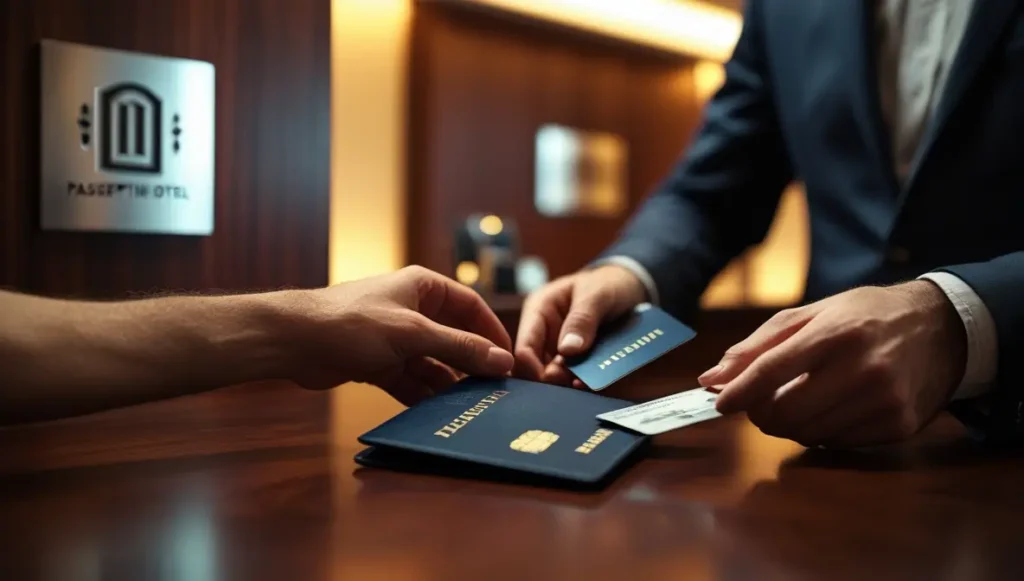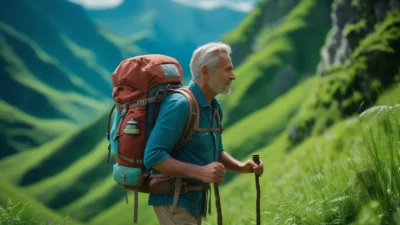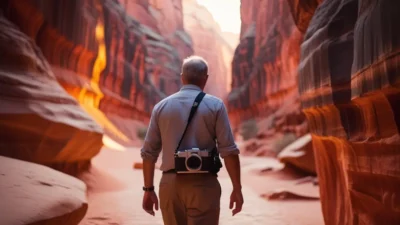Traveling alone can be an enriching and empowering experience, but it requires extra vigilance to ensure your safety. Whether you’re exploring a new city or embarking on a solo adventure, staying safe is paramount. In this guide, we’ll explore practical tips and strategies to help you navigate the world with confidence and peace of mind.
Why Is Safety Important When Traveling Alone?
Solo travelers face unique challenges, from navigating unfamiliar environments to managing personal security. By prioritizing safety, you can focus on enjoying your journey without unnecessary risks.
Common Challenges for Solo Travelers
- Loneliness: Feeling isolated in unfamiliar places.
- Language Barriers: Difficulty communicating with locals.
- Security Concerns: Increased vulnerability to theft or scams.
“safety isn’t just about avoiding danger—it’s about embracing travel with confidence.”
Essential Tips for Staying Safe While Traveling Alone
Here are actionable steps to protect yourself and enjoy your solo adventures.
1. Research Your Destination
Understanding your destination helps you anticipate potential risks and plan accordingly. Knowledge is power when traveling alone.
What to Research
- Local customs and cultural norms.
- Crime rates and areas to avoid.
- Emergency contact numbers (police, hospitals).
- Currency exchange rates and ATM availability.
Tools for Research
- Use travel guides or apps like Lonely Planet or TripAdvisor.
- Check government travel advisories for updates.
- Connect with local expats or travelers through forums or social media.
2. Plan Ahead and Stay Organized
Preparation reduces uncertainty and ensures you have everything you need for a smooth trip.
Planning Essentials
- Book accommodations in advance to secure safe and reputable lodging.
- Create an itinerary but remain flexible to adapt to changes.
- Keep important documents (passport, ID, insurance) in a secure place.
Packing Tips
- Carry only what you need to minimize baggage.
- Use a money belt or hidden pouch for valuables.
- Pack a small first-aid kit for minor emergencies.
3. Stay Connected and Communicate
Staying in touch with loved ones provides reassurance and allows them to assist if needed.
Ways to Stay Connected
- Share your itinerary and contact details with family or friends.
- Use messaging apps like WhatsApp or iMessage for real-time updates.
- Download emergency apps that track your location or send alerts.
Communication Best Practices
- Regularly check in with someone back home.
- Avoid sharing detailed plans publicly on social media.
- Inform trusted contacts if you change your schedule unexpectedly.
4. Trust Your Instincts
Your intuition is a powerful tool for identifying unsafe situations. trust your gut feelings and take action if something feels off.
Signs of Potential Danger
- Suspicious behavior from strangers.
- Crowded or poorly lit areas.
- Unfamiliar surroundings that feel uncomfortable.
What to Do If Something Feels Wrong
- Remove yourself from the situation calmly.
- Seek help from locals or authorities if necessary.
- Trust your instincts even if others seem unfazed.

5. Be Aware of Your Surroundings
Maintaining situational awareness keeps you alert to potential threats and helps you respond quickly.
Tips for Staying Alert
- Avoid distractions like headphones or excessive phone use.
- Scan your environment regularly to identify exits or safe zones.
- Trust your instincts and avoid risky situations.
Strategies for Staying Visible
- Walk confidently and purposefully.
- Avoid looking lost or confused in public spaces.
- Dress appropriately for the culture and weather.
6. Protect Your Valuables
Theft is a common concern for solo travelers. safeguarding your belongings reduces stress and prevents financial loss.
Valuable Items to Secure
- Passport and identification documents.
- Cash, credit cards, and travel documents.
- Electronics like phones, cameras, or laptops.
Security Measures
- Use a money belt or concealed pouch for valuables.
- Store copies of important documents in a separate location.
- Avoid flashing expensive jewelry or electronics.
7. Learn Basic Self-Defense Techniques
Knowing how to defend yourself can provide peace of mind and boost confidence while traveling alone.
Simple Self-Defense Tips
- Practice basic moves like punches, kicks, or escapes.
- Carry a personal alarm or pepper spray for emergencies.
- Attend self-defense classes before your trip.
Confidence Boosters
- Stand tall and maintain eye contact with strangers.
- Smile and appear approachable but not vulnerable.
- Know how to call for help in the local language.
8. Choose Safe Accommodations
Where you stay plays a significant role in your overall safety. prioritize secure and well-reviewed accommodations.
Features of Safe Lodging
- Located in a safe neighborhood.
- Offers secure locks and keycards.
- Provides 24-hour reception or security staff.
Booking Tips
- Read reviews and ratings from previous guests.
- Opt for hotels with surveillance cameras or alarms.
- Consider staying near public transportation for easy access.
9. Be Mindful of Scams and Fraud
Solo travelers are often targeted by scams due to perceived naivety or loneliness. staying vigilant protects you from falling victim to fraud.
Common Scams to Watch Out For
- Fake taxis or overpriced rides.
- Street vendors offering “special deals.”
- Phishing attempts via email or text.
How to Avoid Scams
- Verify prices and services before agreeing.
- Ask locals for recommendations instead of relying solely on tourist information.
- Be cautious of unsolicited offers or overly friendly strangers.
10. Take Care of Your Mental Health
Traveling alone can be stressful, especially if you’re dealing with unexpected challenges. prioritizing mental health ensures you stay resilient throughout your journey.
Ways to Manage Stress
- Practice mindfulness or deep breathing exercises.
- Keep a journal to process emotions and reflect on experiences.
- Set realistic expectations and celebrate small victories.
Support Networks
- Connect with other solo travelers through meetups or online communities.
- Reach out to friends or family for emotional support.
- Consider therapy or counseling if needed.

Frequently Asked Questions About Solo Travel Safety
What Should I Do If I Feel Unsafe?
Trust your instincts and remove yourself from the situation. seek help from locals, police, or trusted contacts.
Are There Specific Risks for Men Traveling Alone?
Men may face different challenges, such as harassment or being seen as a target for scams. staying aware and respectful helps mitigate these risks.
How Can I Avoid Being Seen as an Easy Target?
Dress modestly, avoid showing wealth, and blend in with locals. confidence and awareness make you less likely to attract unwanted attention.
What Should I Do If I Get Lost?
Stay calm and use GPS or maps to find your way. ask locals for directions politely and verify their advice.



